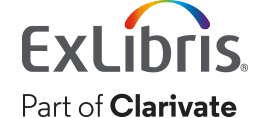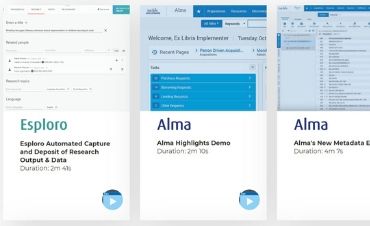Daniel Greenberg, Rosetta Product Manager at Ex Libris
Dear Digital Preservation Community,
First, I would like to congratulate you on the WDPD 2020. This important annual milestone reminds us of how important the global Digital Preservation community is, particularly during this challenging year. We’re once again reminded to raise our heads above the chaotic reality and look forward, to the future. Our mission to preserve digital archives seems more important than ever, considering the absolute dependency we have these days on remote access to scholarly, historic, cultural, governmental and religious material.
At Ex Libris, we’re constantly researching and preparing for the future of digital archives, as Benjamin Franklin expressed it: “By failing to prepare, you are preparing to fail”. The following are just some of our preemptive activities, making sure we’re always several steps before our customers, guaranteeing they travel safely through their digital journey into the future:
- Preparing for huge volumes of data: Institutions with a digital preservation strategy very rarely delete content permanently. Instead, they utilize DP solutions such as Rosetta to preserve all historic versions of digital material, allowing to restore any previous version. This makes a lot of sense, however, it also means their repositories are constantly growing. Huge repository means huge strain on hardware, database, applicative processes, repository searches and more. At Ex Libris, we have recently setup a unique performance lab, simulating over 1 billion files of diverse types, formats, structures and metadata. We’re continuously improving Rosetta’s performance on this environment, thus providing our customers with piece of mind prior to their arrival at such a scale of content.
- Preparing for format obsolescence: Ex Libris is continuously developing Rosetta hand in hand with the dedicated community of digital preservation experts, comprised of many prominent figures in the global digital preservation community. Ex Libris’ solid collaboration with the customers results in strategic decisions on how Rosetta will collect the data required for identifying obsolete formats and other risks. The joint research produced decisions such as:
- Alignment with PREMIS 3, eg addition of PREMIS 3 semantic units, nested intellectual entities for preserving hierarchical structures and more
- Multiple routes for migrating files from one format to another: An advanced route, automatically creating a set of files at risk and including automatic and manual comparison of several migration alternatives, vs a simplified route for migrating any set of files to a new format, designated at institutions who know ahead of time which migration flow they would like to run and do not require comparison of alternative strategies.
- Embedding veraPDF for PDF/A validation
- Staying up to date with latest technologies: Rosetta provides a fine balance between a continuously updated suite of out-of-box services, and an open architecture which allows customers to fully customize the solution according to their unique needs. The latter is supported by a comprehensive set of APIs and an exhaustive plugin mechanism for integrating external tools. This balance guarantees Rosetta will always be up to date with cutting edge tools, while allowing customers to experiment and integrate their own favorable services. These are just some of the recent advancements in Rosetta:
- Upgrading to IIIF Presentation API v3, supporting rendering of non-image sequences such as PDF, audio-visual and more, either through the IIIF manifest or via embedded delivery services such as the Universal Viewer.
- Supporting local S3 object storage, in addition to many out-of-box storage plugins, such as Amazon S3, Google Cloud and any POSIX compliant storage solution.
We would like to wish you all a happy World Digital Preservation Day, and looking forward to meeting you all face to face!
Thank you,
Daniel Greenberg
Further information on Rosetta can be found here.
November 5, 2020






